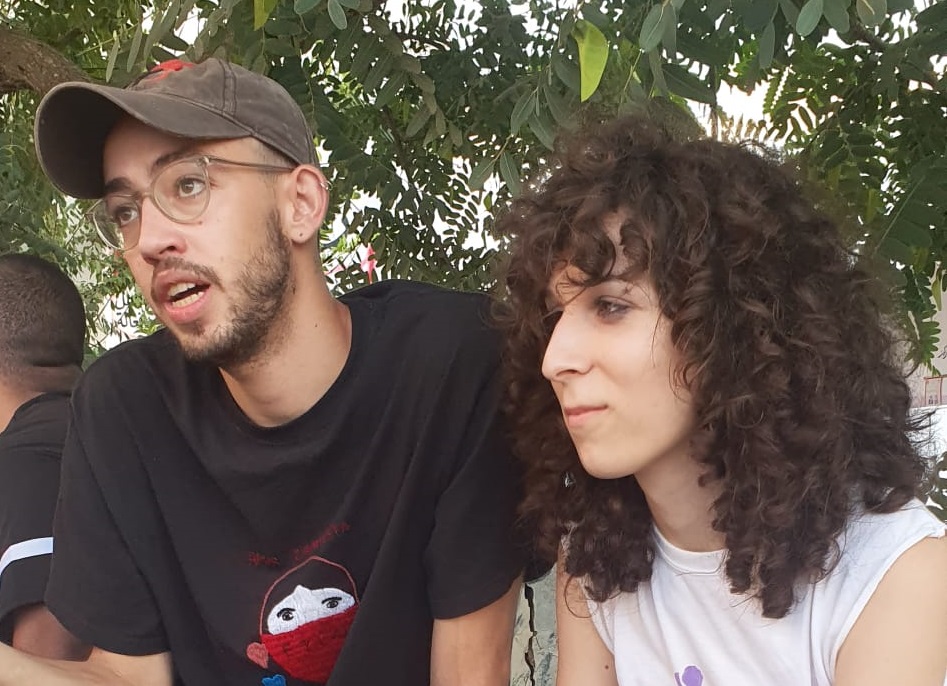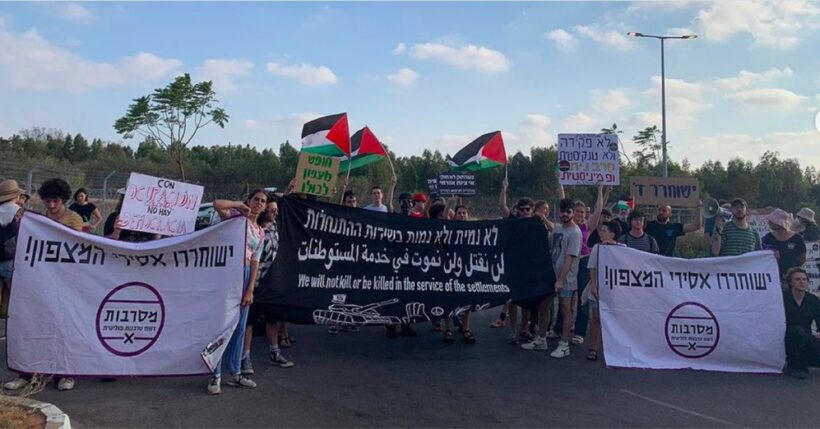Mesravot is a network of activists and refusenik (conscientious objectors who refuse to serve in the Israeli army because of its occupation policies). We talk with one of its activists, Ella Keidar, 17 years old, who lives in Tel Aviv.

Ella Keidar with Yehelich Cialic, coordinator of Mesravot.
What led you and other young Israelis to refuse to join the army?
Many people don’t join the army for various reasons, but what led me and my friends to not only not take part in a violent, occupying military force, but to actively work against it, is the hope that we can change the reality of this place.
What are the consequences of your choice?
Some of us are sentenced to military prison for a few weeks or months, and there are familial problems some of us deal with, but the main consequence is that once we don’t refuse for ourselves, but turn our refusal into a political action, going out to the press, declaring our refusal and directly acting with fellow activists, Israeli and Palestinian, all that puts us at a risk, especially with the repressive political climate of this moment.
What are the activities of Mesravot?
Our activities vary; we support each other in our refusal and offer legal support to refusenik who go to military prison, we do activism in the public space to raise awareness of refusal and advance anti-militaristic discourse.
How is the situation in Israel for pacifists and conscientious objectors after the Hamas attack on 7 October? Has there been violence against you?
The situation is difficult. Israeli society is much less accepting our ideas than it was even a few months ago, which wasn’t a lot either. At the moment all our conscientious objectors are anonymous because of how scary it is both from civilians and state repression, but we’re still active, just more careful.
Are there common initiatives organized by Jews and Palestinians to stop this terrible war?
There certainly are, even despite how dangerous it is to voice dissent at the moment; there is a joint letter to the UN we organised together with fellow Palestinian and Israeli youth peace activists, there’s the joint declaration for peace of many different civil society organizations and there’s the joint Arab-Jewish civil guard in Tel Aviv and Jaffa, created by the popular assembly of Jaffa and few civil society organisations to prevent violence and racism towards Palestinian residents and protect civilians.
What possible solution do you see for this conflict?
I think the only way forward, towards true justice and peace, is through genuine Jewish-Palestinian partnership; there are millions of Jewish Israelis and millions of Palestinians on this land and no one is going anywhere. We have to find our way of living together, through mutual recognition, a real political solution, Palestinian sovereignty, institutional reparations and the right of return.










